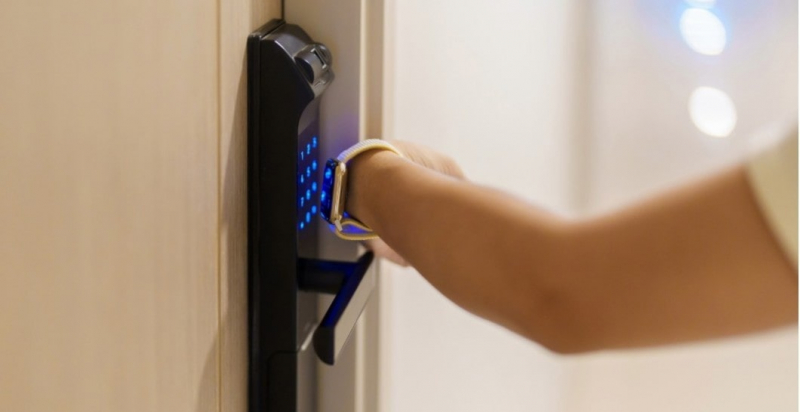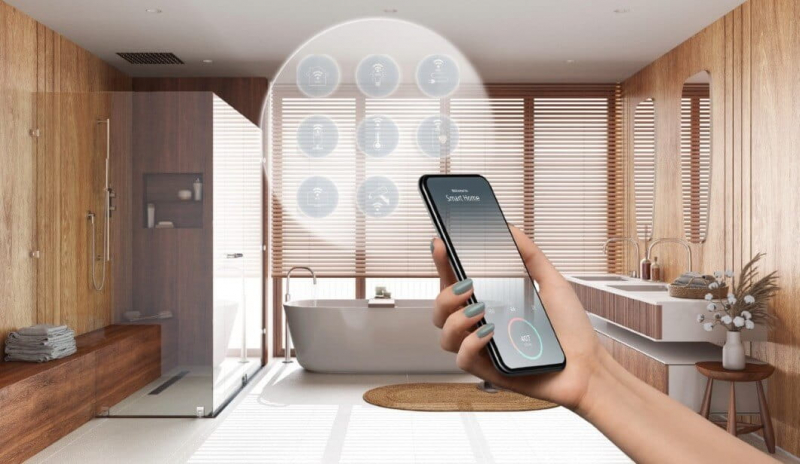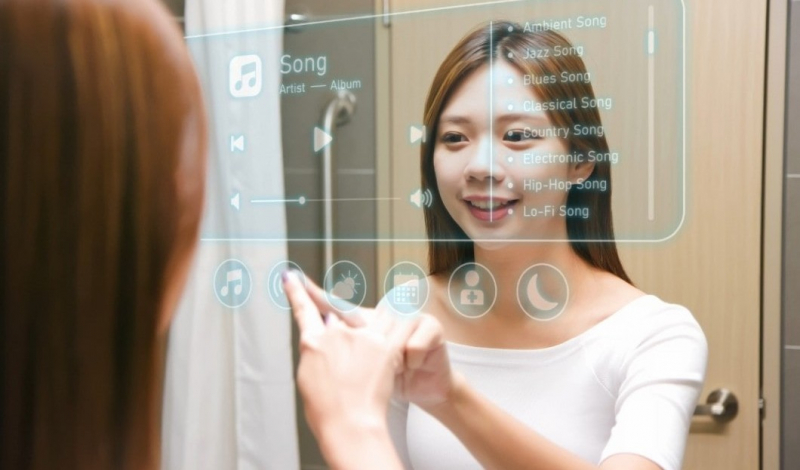The hospitality sector is currently experiencing a tech-driven evolution, with “smart hotel rooms” changing the very nature of the guest experience, from the initial booking right through to check-out. A study, the “2025 Hotel Room Innsights” report (based on a survey of over 450 hotels globally), indicated that a significant 56% of hotels feel a persistent pressure to stay abreast of rapidly changing technology in order to adequately meet the evolving expectations of their guests.
It is becoming increasingly commonplace to find innovations such as smart lighting systems, AI-driven concierge services, and even technologically advanced bathrooms; however, this report emphasizes a particularly crucial point—the need to maintain a careful equilibrium between state-of-the-art technology and the irreplaceable “human touch” that guests still deeply appreciate.
The Push for Smarter Hotels
Interestingly, the Innsights report highlights that a growing number of hotels are now adopting what is being called “ComfortTech”—practical technologies designed to enhance comfort, prioritizing guest convenience over purely flashy or showy features. In contrast to the more futuristic, and perhaps less immediately practical, allure of concepts like robotic butlers or facial recognition check-in systems, hotels are increasingly choosing to focus on more intuitive solutions, such as high-speed Wi-Fi, smart TVs with extensive streaming capabilities, and easily customizable lighting schemes. It appears that these kinds of features are quickly becoming perceived as baseline expectations, with one hotelier observing that, “things like fast Wi-Fi, seamless TV connectivity, and intuitive room controls are pretty much standard guest requirements these days.”
Key Technological Innovations:
- In-room entertainment: A strong leaning towards Smart TVs, and Bluetooth speakers linked directly to streaming services.
- Sustainable technologies: Greater use of energy-efficient systems, more efficient water-saving devices, plus a greater focus on apps designed to reduce food waste.
- Efficiency: Smoother mobile check-in and check-out options to create more seamless guest experiences.
- Artificial intelligence: Wider deployment of AI-supported concierges and chatbots to offer a more personalized service.
However, the report does bring to light an emerging difficulty: as smart hotel rooms become more technologically advanced, guests sometimes experience frustration when trying to navigate increasingly complex systems for controlling lighting, Wi-Fi access, or air conditioning. In response to this problem, just over half (52%) of hotels are now providing short verbal demonstrations of the core technologies at check-in, intending to help guests get the most out of the available features.

The Unexpected Rising Star: Smart Bathrooms
One particularly noteworthy trend has been the transformation of hotel bathrooms into technologically advanced spaces. Ranging from smart mirrors that can display real-time weather updates through to voice-activated bathtubs, it appears that bathrooms are becoming a key focus for technological innovation in the hotel sector. Some of the more prevalent features now being seen include:
- Smart mirrors: Which provide up-to-the-minute news headlines, plus constantly updated weather information.
- Digital water controls: Including motion-sensor faucets and “smart” showerheads that can change color in direct relation to water usage.
- Japanese-style toilets: Increasingly, hotels are adopting these, and equipping them with smart bidet systems.
- Accessible design: With changes like lowered bathtubs, specifically intended to improve access for wheelchair users.
- Voice-activated features: Now allowing for hands-free control when it comes to filling bathtubs.
Click here to preview your posts with PRO themes ››
These types of improvements not only greatly increase guest comfort, but they can also help hotels work towards greater sustainability, for example by actively reducing water and energy consumption.
The Importance of the Human Touch
Despite the ever-increasing rise of technology in the sector, human interaction still remains absolutely crucial to the overall hospitality experience. The survey mentioned earlier revealed that a strong majority (70%) of hotels reported that their guests still preferred to speak directly with staff members during the check-in process, and that they generally preferred to seek assistance from a real person, clearly underlining the continuing value of face-to-face service. One hotel put it rather well: “Friendly and personalized service is what allows us to create real connections, and to truly empathize with the needs of our guests.”
This ongoing preference has led certain hotels to consciously scale back on some of the less well-received technologies, things like breakfast-serving robots or robotic assistants stationed in the lobby, which guests tended to find either impersonal or just plain cumbersome. The overall focus appears to be shifting towards those technologies that genuinely complement, rather than completely replace, human interactions.

The Future Hotel Room Concept
Looking forward, many hotels are now investing in technologies that promise to deliver even greater levels of personalization, plus increased operational efficiency. The Innsights report identifies a number of particular innovations which are expected to continue to gain traction over the next few years:
- AI-driven solutions: Such as real-time language translation, energy-saving automation systems, plus AI concierge services which are closely tailored to guest preferences.
- Robotic solutions: including cooking robots to assist in food preparation, automated baggage handlers, and even cleaning robots designed to streamline operations.
- Guest experience enhancements: For example, voice-controlled rooms, the use of sleep trackers, and wider adoption of smart mirrors, all intended to create a fully customized stay.
The primary goal is to design highly intuitive, and user-friendly environments that actively anticipate the needs of guests, while simultaneously making sure that the technology remains remarkably easy to use. However. The report highlights a crucial balancing act for the perfect smart hotel room: It needs to wow guests with its sophistication, but also be straightforward enough for anyone to use without a hassle.


